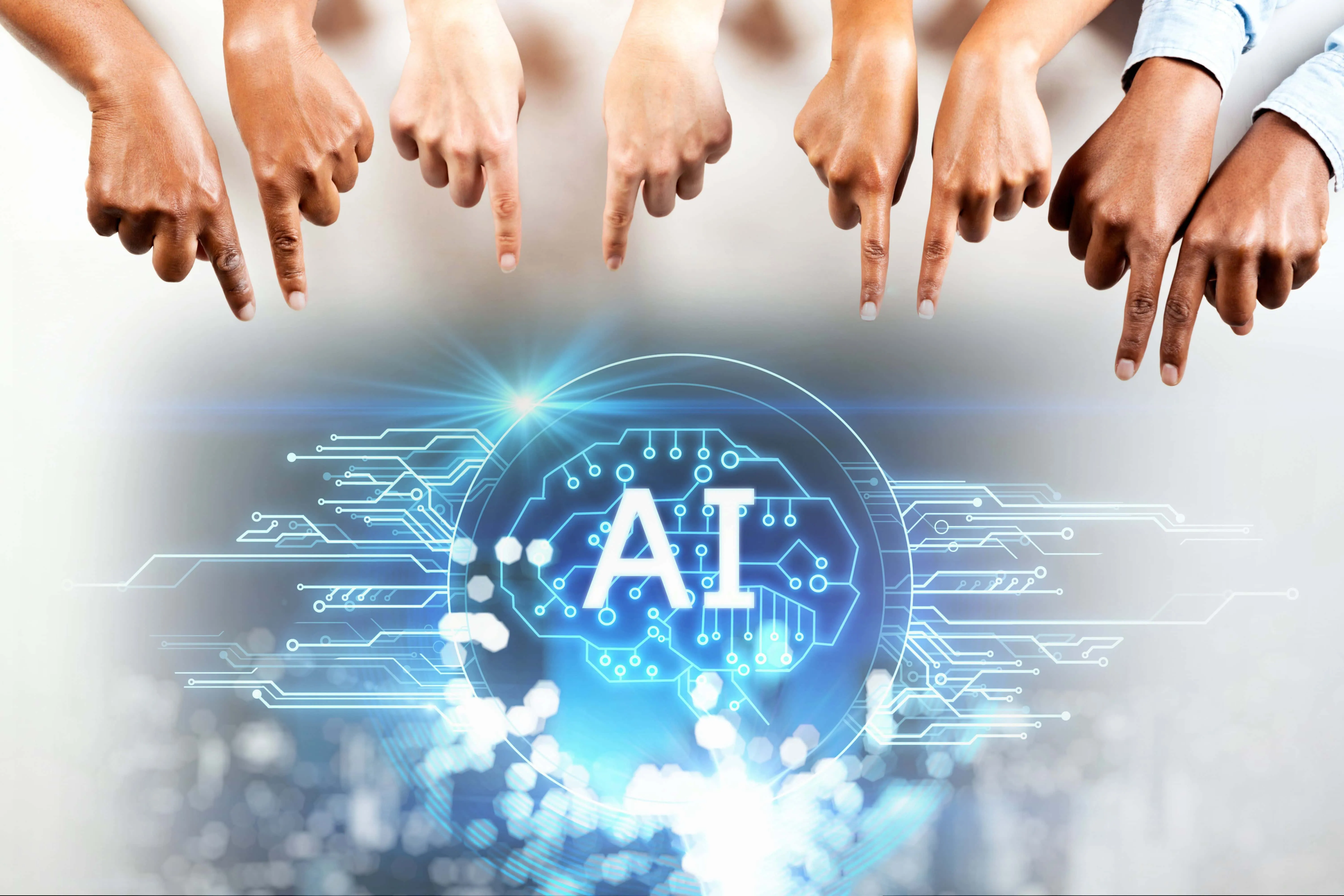Welcome to your definitive guide on AI and diversity in the workspace! As technology advances, artificial intelligence becomes an increasingly indispensable tool in enhancing workplace diversity. This guide is designed to explore how AI is shaping the recruitment landscape, promoting inclusivity, and addressing challenges associated with diversity in the workforce.
Why Focus on AI and Diversity?
Integrating AI into diversity efforts not only helps mitigate bias but also enriches organizational culture, opens up new opportunities for innovation, and attracts talents from diverse backgrounds. Entry-level job seekers and employers alike must understand the dynamic interaction between AI and diversity to better prepare for the future of work.
Whether you’re a fresh graduate stepping into the job market or an employer seeking to revamp your recruitment strategy, this guide offers insights, practical advice, and success stories that demonstrate the powerful role of AI in promoting diversity.
Let’s dive in and discover how leveraging AI can lead you to a more diverse, equitable, and successful professional environment.
Understanding AI and Its Impact on Diversity
Artificial Intelligence (AI) is revolutionizing how we understand and enhance industry diversity. AI has the potential to uncover bilingualism benefits in the US by automating the analysis of language skills in recruitment processes. This goes beyond simply scanning resumes; AI can interactively assess language proficiency through dynamic interviews, helping companies tap into diverse talent pools. Additionally, AI-driven data analytics are crucial in identifying and addressing unconscious biases in hiring practices.
Key Impacts
- Data-Driven Decisions: AI helps make unbiased hiring decisions by evaluating candidates based on skills and experiences rather than subjective criteria.
- Accessibility Enhancements: AI technologies such as voice recognition and adaptive interfaces make workplace tools more accessible to people with disabilities.
- Cultural Competence: AI-driven programs can train employees on cultural competence, using simulations that showcase different scenarios, thus fostering a more inclusive environment.
Unleashing Potential with AI
Moreover, AI’s capability to parse vast amounts of data can lead to more inclusive strategies. For example, AI can analyze market trends to ensure product designs meet the needs of diverse populations, a practice that naturally extends company reach and boosts inclusiveness.
All these advancements suggest AI not only serves as a tool for operational efficiency but also as a crucial ally in enhancing diversity. Thus, thoughtful implementation of AI technology is essential to support diversity and inclusion efforts effectively.
The Role of AI in Promoting Workplace Diversity
AI has a notable role in structuring initiatives that promote diversity within the workplace. By analyzing extensive employee data sets, AI identifies diversity gaps and proposes measures to address them.
Enhancing Recruitment through AI
- Broader Talent Reach: AI enables organizations to scout talent globally, breaking geographical barriers and including a broader range of cultural and ethnic backgrounds.
- Improved Job Matching: Through sophisticated algorithms, AI can match candidates with roles where they are most likely to excel, regardless of their background, ensuring fair and equitable placement.
Training and Development
AI-driven training modules can be tailored to individual learning styles, promoting effective skills development. AI also provides diversity training through virtual reality environments, allowing employees to experience and understand diverse perspectives firsthand.
Furthermore, continual AI monitoring helps maintain diversity by analyzing team compositions and workflow integrations, ensuring that diversity goals are actively pursued across all levels of a company. By implementing these AI solutions, businesses not only adhere to equal employment opportunities but also foster a creative and inclusive environment that reflects their commitment to diversity and inclusion.
Challenges and Concerns with AI in Diversity Efforts
While AI offers substantial benefits in promoting diversity, it also presents specific challenges and concerns. Particularly, the risk of perpetuating existing biases poses a significant threat to diversity efforts.
Biases in AI Systems
- Algorithm Bias: If the data used to train AI systems is biased, AI decisions will reflect those biases.
- Lack of Diversity in AI Development: AI development teams often lack diversity, which can lead to oversight in multicultural or gender-specific considerations.
Data Privacy and Ethical Concerns
Protecting employee data privacy is crucial. AI systems process vast amounts of personal information, raising concerns over data misuse. Moreover, ensuring AI ethics in diversity efforts involves complex challenges, such as defining fairness in different contexts.
Despite these challenges, solutions are available. For instance, regular audits can help identify and rectify bias within AI algorithms, ensuring fair practices. Additionally, enhancing team diversity can reduce overlooked biases in AI development. Therefore, recognizing these issues and actively working to solve them is necessary to fully leverage AI in diversity. Also, review ethical guidelines from reputed sources like United Nations on AI to better inform these efforts.
Success Stories
Several organizations demonstrate how effectively using AI can drive not only greater diversity but also operational success. These cases provide a roadmap for others to follow.
Case Studies of AI Enhancing Diversity
- Tech Industry Leaders: Major tech firms have implemented AI systems that reduce bias in hiring processes, reflecting a more diverse workforce composition.
- Global Banks: Some international financial institutions use AI to create diversity training programs, significantly increasing awareness and inclusion.
Impactful AI Applications
One notable example is an AI-powered recruitment platform that blindfolds names and photos to focus on skills and qualifications alone. Such tools have led to more diverse candidate selection and a fairer hiring process.
Moreover, AI-driven analysis tools assess employee feedback across various demographics, enabling companies to address specific needs and improve satisfaction rates among all groups. For practical guidelines and to see regulatory framework on AI ethics, Federal Trade Commission on AI is an excellent resource.
Ensuring Ethical Practices in AI Deployment
For AI to positively impact diversity, ethical guidelines must be adhered to from design to deployment. Organizations need to prioritize integrity and fairness in their AI systems to mitigate any adverse effects.
Developing Ethical AI Frameworks
- Transparency: Companies should document and disclose how AI models make decisions, ensuring accountability.
- Inclusivity: Input data for AI should be gathered from diverse sources to prevent bias and enhance fairness.
Regular Auditing and Updating
AI systems require regular revisions to adapt to new diversity dynamics and societal norms. Furthermore, third-party audits, such as those recommended by the National Institute of Standards and Technology, are crucial to maintain transparency and fairness.
Also, incorporating feedback mechanisms allows employees to report and correct potential biases in AI applications. By nurturing a proactive culture, businesses can ensure their AI strategies support their diversity goals.
AI Tools and Resources for Enhancing Diversity
There are various AI tools and resources that companies can utilize to create diversity and inclusion in the workplace. These technologies offer practical solutions for addressing diversity challenges efficiently.
Top AI Tools for Diversity
- Diversity Recruitment Platforms: These platforms utilize AI to scan and assess diverse talent pools, ensuring a wider and more equitable search.
- Sentiment Analysis Tools: AI algorithms analyze communication patterns and employee feedback to identify diversity and inclusivity issues within teams.
Resources for Learning and Implementation
Organizations looking to leverage AI for diversity can access many online courses and certifications. Platforms like Coursera offer specialized training in ethical AI and inclusive technology practices. Additionally, workshops and webinars provided by industry leaders can equip teams with the necessary skills to implement AI responsibly.
Future Trends: AI and Diversity Integration
As AI technology evolves, its integration with diversity initiatives is expected to deepen, influencing how organizations operate and innovate. Looking ahead, several key trends are likely to dominate the landscape.
Upcoming Trends
- Inclusive AI by Design: Greater emphasis will be placed on developing AI with diversity as a foundational element, not an afterthought.
- Cross-sector Collaboration: More collaborations between tech companies, academic institutions, and non-profits will drive innovations in inclusive AI practices.
Long-Term Impacts
AI is poised to become a crucial tool in overcoming historical barriers to diversity. By automating elements of the recruitment and retention processes, AI can help sustain diverse workplaces over time. Moreover, as AI tools become more widespread, they will also become more tailored to addressing specific diversity challenges different industries face.
Additionally, for comprehensive guidelines, organizations can refer to the Association for Computing Machinery’s Diversity and Inclusion Council.
FAQs
What specific AI tools aid in promoting diversity?
Tools like AI-driven recruitment platforms and diversity training programs significantly aid in boosting workplace diversity.
How can AI be programmed to avoid biases?
Implementing diverse data sets and ensuring the development team is culturally varied will minimize algorithmic biases.
Is AI capable of fully eliminating biases in hiring?
While AI can significantly reduce biases, human oversight is crucial to evaluating AI recommendations and making final decisions.
What measures are taken to ensure AI’s ethical use in diversity?
Regular ethical audits, transparency in AI decision-making, and adherence to international standards are key practices.
Can smaller enterprises afford AI diversity tools?
Yes, there are scalable AI tools available that are cost-effective and suitable for smaller enterprises aiming to enhance diversity.
What future advancements in AI can we expect?
Future advancements will likely focus on more nuanced AI capabilities that address a broader spectrum of diversity aspects in deeper ways.
Conclusion
Integrating AI in the quest for increased workplace diversity is profound and impactful. Employers who harness the power of AI gain access to a richer talent pool, more innovative ideas, and a more inclusive work atmosphere. On the flip side, the challenges posed by AI biases and ethical concerns are very real but can be managed with a meticulous approach and ongoing regulations.
In conclusion, as we move forward into a technologically advanced future, let’s leverage these powerful tools to build workplaces that reflect the diverse world in which we live. The journey toward greater inclusivity is continuous, and every step counts.
Join the Movement
To take a more active step in shaping an inclusive future, consider joining Diversity Employment. Here, you can find diverse staffing jobs, resources, support, and networking opportunities to help your company embrace AI-powered diversity and commit to fairness.




